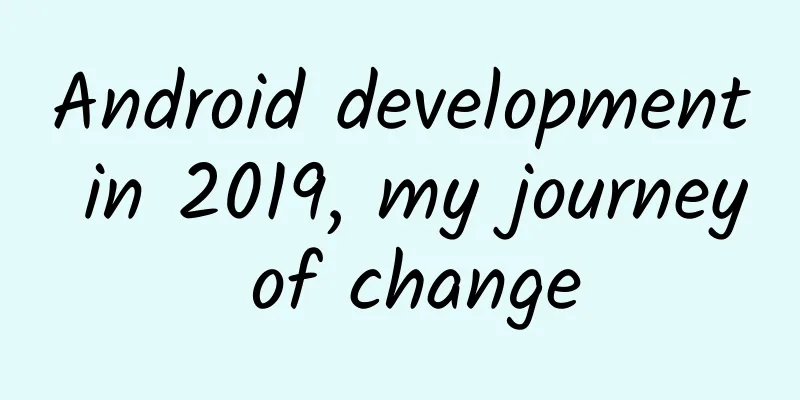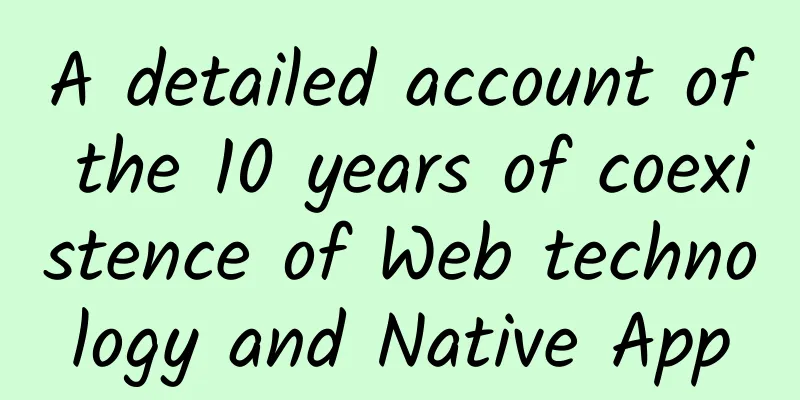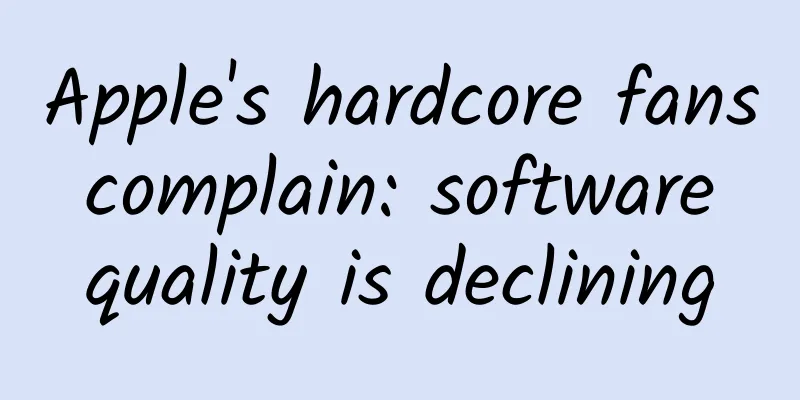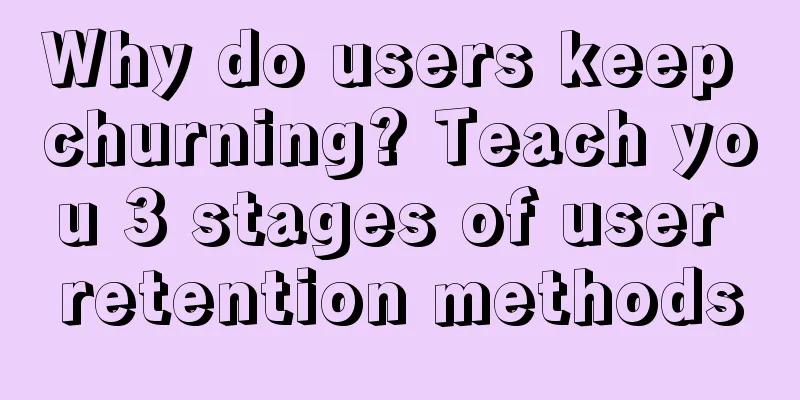Mobile game startup review: Why did the company fail 3 and a half years after its establishment?
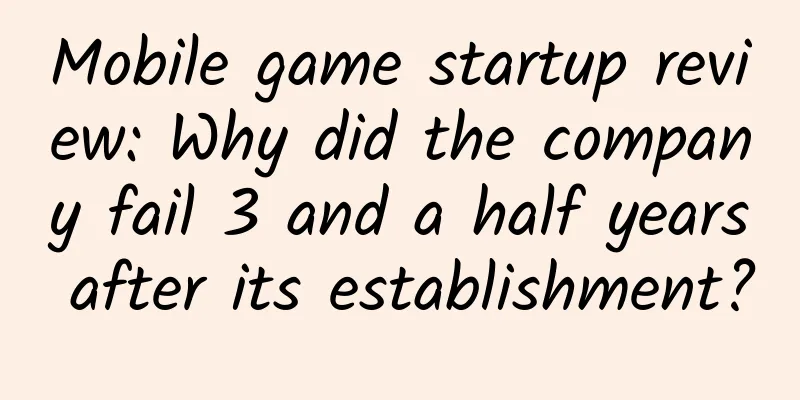
|
As competition in the mobile game industry becomes increasingly fierce, many small and medium-sized teams have encountered difficulties. Recently, JuiceBox Games, a mobile game studio based in San Francisco, announced its closure. It is worth noting that its CEO Michael Martinez explained the reason for the closure by saying, "We didn't make good enough games." Such a frank statement is rare.
JuiceBox Games was founded by former Zynga employees. After many attempts, this studio that focused on developing mid-core mobile games still couldn't make it. According to a review by Martinez in a blog post, the reasons for the company's closure were quite complicated. The team, which eventually had 36 people, had released two mobile games, attracted 5 million players, and generated revenue of more than $8 million (about RMB 51.81 million). It was recommended by Apple and received $2.54 million (about RMB 16.45 million) in seed financing. However, it unexpectedly closed down three and a half years after its establishment, which is really sad. For many companies, the above achievements are already considered small achievements, but why can't they succeed? He said, "We have never created a mobile game that can bring sustained income to JuiceBox, which cannot support the investment in infrastructure and has no further funds to make more games." Martinez revealed that the studio's first game "HonorBound" was not successful enough, so they had to find a reasonable way to allocate resources to develop the second game "StormBorn", but the download volume of the second game was not even one-tenth of the first game "HonorBound". As a result, the company had no funds to continue to make new games and had to declare failure. "My failure to address these issues, whether it was IP, marketing budget, community/Youtube/Twitch or esports, was the primary reason the company failed," Martinez said in a blog post. "We were still doing the same old mobile games approach we had in 2013, and when our second game launched in 2015, we had no strategy in place to adapt to the new landscape." For JuiceBox, the founding team can be regarded as experienced game developers, and the first game can be regarded as a success for many teams. But why did this company, which started out smoothly, eventually fail? Let's take a look at the details of the founder Michael Martinez's review, and hope that their experience and lessons can bring some help to adventurers who are starting a business or want to start a game business:
Some thoughts after closing JuiceBox Games studio After three and a half years, I am very disappointed to announce the closure of JuiceBox Games. Our studio is located in San Francisco. Our original intention was to develop soulful mobile games to bring the best entertainment experience to players. With the support of excellent investors, such as Initial Capital (Kristian Segerstrale joined our board of directors), Index Ventures, General Catalyst, Maveron, Scott Dale, John Riccitiello, etc., we received $2.54 million (about 16.45 million RMB) in seed funding. In the past few years, we have had successes and setbacks, but in the end, we found that the company's business could no longer continue. I hope to share some of the lessons I have learned along the way. I will no doubt review myself more than once in the following articles, but balancing conflicting opinions and making decisions is one of the main challenges in the mobile game business. First of all, I want to say that I am proud of JuiceBox Games' achievements in the past few years: Screenshots from HonorBound We have released two mobile games, HonorBound and StormBorn; the community has more than 5 million players; the cumulative spending of players on the two games has exceeded US$8 million (approximately RMB 51.81 million); HonorBound ranked as high as 31st on the US iPhone revenue list; it was also the highest-grossing RPG/card mobile game in 28 countries and regions; it has been recommended by Apple and Google; it has achieved 4.5-star reviews in both stores; and we have built a dedicated team of 36 people. What do we do well? Dedication to success From the very beginning, we put all our efforts into JuiceBox Games. We had no investors and no complete team at first, but we still focused on getting things done. We started out working in Jason's restaurant for a few weeks, and then we quickly found an office. We never treated the studio as a side job or a subsidiary project. Our goal from beginning to end was to create excellent and valuable games, not other things that might lead us in the wrong direction. For those who start a company from scratch, confidence and continued dedication are necessary conditions. Prepare for a rainy day I was surprised by this myself, because we asked ourselves very early on, 'What's next after success?' Because after we achieve our goals, some of the big breakthroughs that seem out of reach will pass quickly, such as getting the first investor, closing the seed round, hiring key talent, launching the game in beta, Apple recommending it, and breaking $50,000 in daily revenue. These are all very important moments, but there is always more to do. To build a sustainable and growing business, you can never rest on your laurels. It is not easy to keep the promise It sounds simple, but it is actually very difficult to do what you say you will do. Our desire is to communicate goals clearly and then execute on them. I think we did that for players, employees, and investors. When I first met with Kristian Segerstrale, he said he wanted to see the next demo goal and play it within 6 weeks. After 6 weeks, he played our demo and made his decision (he did what he promised) and led our $2.5 million seed round. On the product side, I am proud of our focus and execution, we released 2 games, both are deep games with a lot of content and complex interconnected systems. This is a major achievement for us in terms of engine, art and design. Everyone at JuiceBox has a simple goal, which is to make the game better. This goal can only be achieved after we release the game and get positive player feedback. Unless we can experience it on real devices, a feature is not considered finished. Before they can experience it in person, players don’t care how new or cool your feature is. Why did we fail, or what mistakes did we make? Lack of understanding of market background Games are an extremely difficult business. When we started in 2012, the top mobile games of the year were The Simpsons, DragonVale, and Kingdoms of the North (Kabam’s Camelot). Then companies like Supercell, King, and Machine Zone quickly took over the charts and have maintained that position for more than 3 years. When we launched our second game in November 2015, we not only had to compete with their classic high-grossing games released in 2012, but also with the winners of the past three years (such as blockbuster sequels, casino games, Hearthstone, Marvel Contest of Champions, and Summoners Call, etc.) to compete for users. The conditions for making a successful game have increased significantly. Over the past few years, I've heard a lot of VCs complain that the gaming industry has become a hit market, and there's no doubt about that. But what kind of game is a hit? It seems that according to VCs, a hit is a game that makes over $1 billion in annual revenue, and there are three ways to succeed: first, take advantage of new distribution platforms, like Zynga did with Facebook games; second, enter the market early and use initial success to establish a leadership position through marketing or research into future games; third, make a hit game, which is extremely difficult. Screenshot of JuiceBox Games' previous official website (now closed) Our approach I think our basic approach of focusing on creating high-quality mid-core games is a very good strategy. Due to our past experience in game development, investors also trust us and see a clear hope of success. The strategy of making mid-core mobile games is very applicable. By creating a differentiated product with HonorBound that can be recognized by players, we have achieved our initial goals. Learning from the experience of the first game and then focusing on RPG games is a very correct decision. Our second game, StormBorn, actually performed better than the first game in terms of individual player KPIs, but the exposure of games in 2015 had changed radically, with StormBorn downloads being less than one-tenth of the first game. With the benefit of hindsight, if we had released StormBorn in 2014 and achieved the same downloads as the first game, JuiceBox would be in a completely different situation than it is now.
Screenshot of the card RPG mobile game "StormBorn: War of Legends" Our company bet everything on every game we released from the beginning. The first game was successful, so we had the funds to make the second game. However, the performance of the second game did not bring the funds for the development of the third game, so we had to pack up and leave. Our failure The biggest failure is that we never built a game that could serve as JuiceBox's revenue growth engine, and we couldn't afford the continued cost of infrastructure investment and the funds needed to develop more games. So in short, we didn't make good enough games. At this time, someone may ask, why didn't we make good enough games? The reason is that making games is actually very difficult. This is a very challenging problem. This is a job that requires treating creative activities as a business. It is not something that can be achieved by starting a new game from scratch. The decisions that need to be made in the process and the amount of work required for game optimization are quite amazing. There are two ways to turn a game into a business: one is to achieve a huge number of installations (through IP or paid purchases) and obtain sufficient revenue through relatively good data performance; the other is to create an excellent core gameplay that can support profitable growth (whether it is natural growth or growth that requires paid investment). Frankly speaking, our two games did not achieve any of the above two goals. We did not achieve a huge number of installations, nor did we have very good core data. We also tried to make the game better through the second method, but we were unable to achieve data and revenue performance to a level sufficient to support the company's growth. The reason may be the problem of resource allocation, the error of our direction adjustment, or our lack of execution. At some point after HonorBound was released in 2014, I got feedback from two investors who were very experienced in games and had worked on a lot of successful games. The feedback they gave me was completely opposite. One person told me (2 months after the global release) that this game is not a big hit, when will you allocate resources to the development of the second game? The other suggested, "focus all your energy on HonorBound, don't distract the team with other things or the second game." How do you balance two completely opposite feedbacks like this? Although HonorBound's performance was significantly different from that of a blockbuster, we believed it had the potential to be a source of revenue growth for the company (and it was for a period of time). So we decided to listen to the second opinion and work on improving the performance of the game. As mentioned above, we were not able to make it a game that could bring long-term revenue growth to the company. Although HonorBound also has sustained revenue ($1.2 million in the past 12 months), unfortunately, this level of revenue cannot support the development of our future games. In addition, our goal is to build a huge and growing business, not a small workshop struggling on the brink of death. When we realized that HonorBound could not achieve our goals, we immediately used our resources on the development of the second game. What did I learn? An excellent distribution strategy can make your mobile game more successful "Make a great product" is not the answer to the question "What is your best distribution strategy?" Making a great product is a requirement and can be successful, but having a great distribution strategy will make your success much easier. My failure to handle distribution was the biggest reason for the company's demise. Whether it was through IP, marketing, taking a unique approach to community/YouTube/Twitch platforms, or esports, I didn't do a good job. Just hoping to get featured by Apple and Google was not enough. Although our game was featured, without the help of these distribution methods, the impact of this feature was greatly reduced. Believe in yourself No matter which aspect, there are always very good reasons and very passionate people to make you make very difficult decisions. As a CEO of a game company, this can be a very lonely job, but you have to accept such decisions. Our emphasis is on moving forward, so I prefer to make decisions so that we can quickly judge whether the decision is right or not. Also, when developing a game, there are always moments of uncertainty. Of course, you need to evaluate new information, but I think it's important to trust the decisions you made previously, after all, they were made for a reason. Willpower It is the founders’ job to keep the company going, and it takes a huge and continuous willpower to keep pushing the company forward. You are a professional in company management and the one who cares about the company the most. I once won the first round of VC financing with such willpower. I needed to fight shoulder to shoulder with these VC giants, and I felt that they would also bear some of the pressure to help the company succeed. However, this burden and pressure belongs to the founders. The biggest help of talking with investors is to find out the problems and how to think about solutions or find opportunities. Some of the clichés I've heard are actually true: Starting a business is very difficult, and starting a gaming company is even more difficult Everyone says that it is really difficult to start a company. Through these three and a half years of personal experience, I have deeply realized how difficult it is to start a business, especially a game company. There are so many things you need to do right: such as developing a product, building a team, building a good team, recruiting the right people, renting an office, finding a lawyer, installing a printer, getting wifi and a trash can, etc., all of which require your participation. I used to think, “Of course I will succeed. After all, I’m a smart person working hard with a lot of smart people. How hard can it be? We will solve the problem.” However, I later found out that there were still too many problems we had not solved. Talent is the most critical factor in entrepreneurship There is no doubt that the value of good people cannot be overstated. I am very pleased that we have assembled a good team, some of whom I would sincerely like to work with. However, building a good team is extremely difficult, such as how do you attract the best talents? How can others find JuiceBox Games studio? When it comes to personnel issues, the old-fashioned approach is to get rid of the incompetent as soon as possible. If you feel that someone is not a good fit for your team, then they probably are not, and you need to make a decision quickly. Sometimes you may wonder if letting a team member go will affect the feelings of others, but in fact, the rest of the team will probably agree with the decision and be happy for you to do so. If you hesitate, someone on the team may wonder why you have not let the incompetent leave for so long. Timing is crucial We didn't take advantage of some unique distribution advantages, such as Facebook's dominance on the web, the timing of the App Store's initial launch, and the low user acquisition cost of the Facebook platform in 2012. We took an approach designed for the 2013 game launch, but when the second game launched in late 2015, we failed to develop a new distribution strategy for the new situation. in conclusion To our co-founders, all of our employees, our friends and family, our investors, business partners, and our 5 million players, thank you so much for your support over the past three and a half years. We have tried to build great games and deliver value in a complex and challenging environment, and despite our best efforts, we have not succeeded. In the past few weeks, I have heard very good feedback from employees and players, which is gratifying for us. Some employees also said that they love working at JuiceBox very much, saying that this is their favorite job, the best team they have ever joined, the job that allows them to learn the most, and there is an interesting and challenging working environment. From a personal perspective, they really enjoy working with all these great people. Players also expressed their love for our games and said that our games have become a part of their lives. From a personal perspective, the past 3.5 years have been the most rewarding and challenging of my career, and I thank all of you for the opportunity and trust you have given me during this process. It is a great honor and privilege to serve as the CEO of JuiceBox Games. Michael Martinez Co-founder and CEO of JuiceBox Games |
<<: Integrate map support in Android applications based on MapBox
>>: VR Chronicles: What did VR devices look like 50 years ago?
Recommend
Children's Day copywriting was tricked again
The copywriting for Children's Day is mainly ...
The most important iPhone launch since then: Four key issues in Apple's earnings report next week
Apple will release its first earnings report next...
If the blood type does not match the parents', does that mean the child is not their biological child? The answer may not be exactly what you think →
After donating blood, a female college student di...
Where can I drink and taste tea in Changsha? Reliable high-end takeaway delivery in Changsha, Changsha nightlife tea tasting recommendations
Where can I drink and taste tea in Changsha? 185-...
PC profiteers are very cunning! Uncover the secrets of Taobao's 8GHz computers
In recent years, DIY computer assembly has gradual...
Three channels for App operation and promotion: online, offline and new media.
App operation is not easy, which depends on produ...
The high-end consumption upgrade trend is rapidly forming. What role does Sony play?
Nowadays, with the changes in China's consumpt...
The academician made a fool of himself, but the audience applauded. What happened?
Recently, a small incident that occurred during t...
How to make voice interaction more natural? Master these 6 key knowledge points first!
I recently read a few very good articles about ro...
ACEA: European new car registrations in September 2020 reached 1.3 million, up 1.1% year-on-year
Data released by the European Automobile Manufact...
What's wrong with breathing through your mouth?
Recently, there has been a lot of discussion abou...
13 key points to help you understand the entire offline event preparation process
Organizing events is a common practice in operati...
Laolu - Small business advanced L2+ L3 product positioning training camp customer acquisition and repurchase training camp
Laolu - Small Business Advanced L2+ L3 Product Po...
A creative sharing of industry information flow advertising that you absolutely cannot miss
The general workflow of daily information flow ad...

